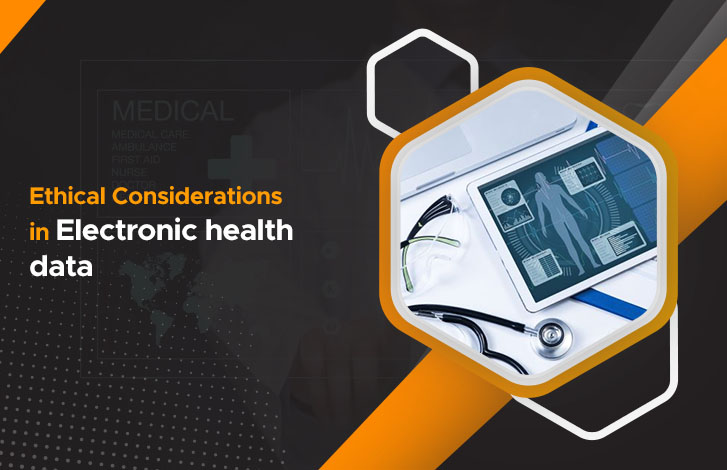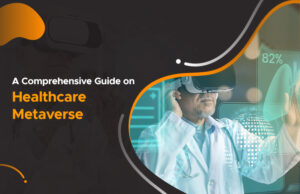What is EHR?
Healthcare is one of the most data-rich industries. With the advancements in technology, this data started being stored electronically. Electronic health records are now an integral part of modern healthcare systems. It helps create a consolidated place for the storage of data and allows for convenient retrieval and analysis of patient data. EHRs have improved decision-making, created personalized care, and improved patient outcomes.
The market for electronic health records was estimated to be worth $30,550.3 million in 2020, and it is anticipated to grow to $63,848.6 million by 2030, with a 7.7% CAGR from 2021 to 2030. However, as the reliance on electronic health data grows, so do the ethical concerns surrounding its collection, use, and protection. It is crucial to address these concerns to ensure that electronic health data is utilized responsibly and ethically.
Ethical Considerations in Electronic Health Data
Privacy Concern
Patient privacy is a fundamental right in healthcare. Electronic health data contains sensitive information about individuals’ medical history, treatments, and personal identifiers. EHRs increase the possibility of the unauthorized use, access, and exposure of sensitive patient data, causing issues with confidentiality and privacy. If personal information is involved, unauthorized access can also affect the patients’ families. Unauthorized access to this data can lead to severe consequences, including identity theft, financial fraud, and discrimination. Robust security measures, such as encryption protocols, access controls, and regular data audits, must be implemented to protect electronic health data from breaches.
To respect patient autonomy, patient interactions, and information must be kept private and secret. Otherwise, patients might withhold crucial information or refrain from getting treatment out of concern about having their insurance rejected, losing their jobs, or being stigmatized. This is even worse with electronic health records because data is exchanged so easily, and system breaches are widespread, despite security precautions. Breaches can happen by mistake, through cyberattacks, or as a result of professional negligence, such as looking up a celebrity’s or family member’s test results. Electronically, everything is simpler to do and track.
Access to Information
Patients have a right to access the information in their medical records. Through patient access and enhanced communication, EHRs can boost involvement and engagement in healthcare. Patients should have a clear understanding of how their data will be utilized, who will have access to it, and the potential risks involved. Transparency and effective communication are vital to empower patients to make informed decisions about their health information.
Security Breach
Security breaches are common in healthcare. They threaten patient privacy when private information is made accessible to the public without the owner’s consent. To counter this, healthcare providers should focus on preventative measures. Software such as firewalls, antivirus software, and intrusion detection software must be used.
Certain policies and procedures maintain the confidentiality and privacy of patient information. The HIPAA Security Rule mandates that businesses maintain audit trails, document information system activity, and have the tools to record and track system activity involving sensitive health data.
Healthcare providers can increase the security of portable EHRs by using encryption, cloud storage, and password protection. Cloud storage, password protection, and encryption can all help make portable EHRs safer. EHRs can also be secured using a two-factor authentication system that includes security tokens and a password.
Anomalies
Integrity guarantees that the data is unaltered. EHRs help promote public health, decrease health inequities, and increase patient safety by eliminating medical errors. However, the accuracy and dependability of the data recorded in the electronic record have been questioned.
Some data inaccuracies might ever occur as a result of inefficient thought to variety. Certain software restricts the options available to the doctor, who, in a rush, could pick the incorrect one and make significant mistakes. Clinicians and suppliers have been trying to fix software issues so that EHRs are accurate and user-friendly.
Since choices about patient care are reliant on the database, loss or destruction of data during data transfer might alter the accuracy of that information. Identity theft in the medical field is an increasing issue. As a result, the victim’s record gets updated with erroneous information. The patient’s insurance company is billed for medical services that were not rendered to the real policyholder, and neither the patient nor the practitioner is immediately aware that the billing was inaccurate.
Conclusion
As electronic health records grow in popularity, ethical concerns surrounding them are raised. They must be tended to in order to ensure the safe transmission and storage of patient data. This increases trust and improves patient outcomes. Privacy and confidentiality of patient information must be ensured through robust security measures. Efforts should be made to mitigate biases and promote equity in collecting and utilizing electronic health data. By addressing concerns and upholding ethical principles, electronic health data can truly revolutionize healthcare while prioritizing patient rights.







